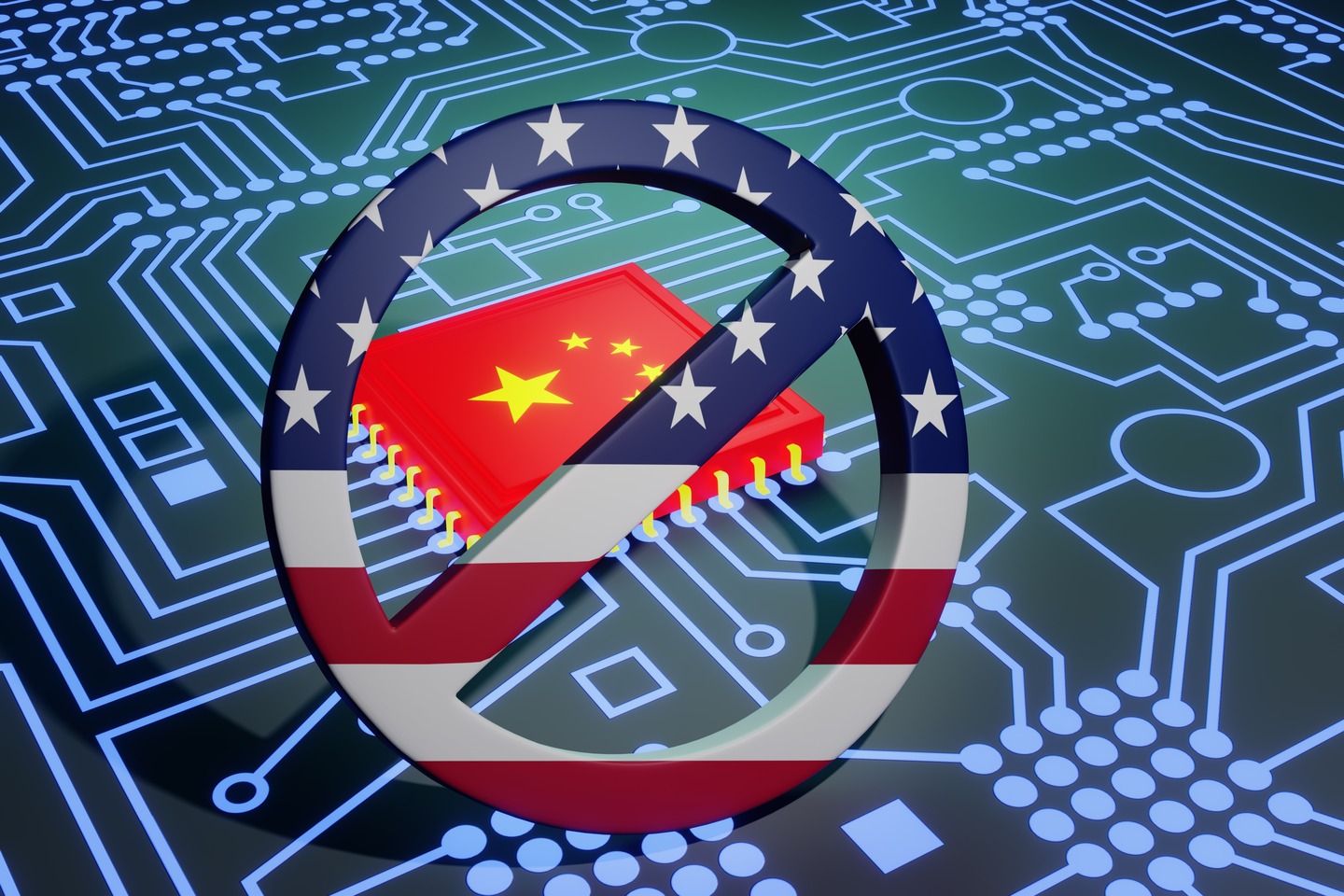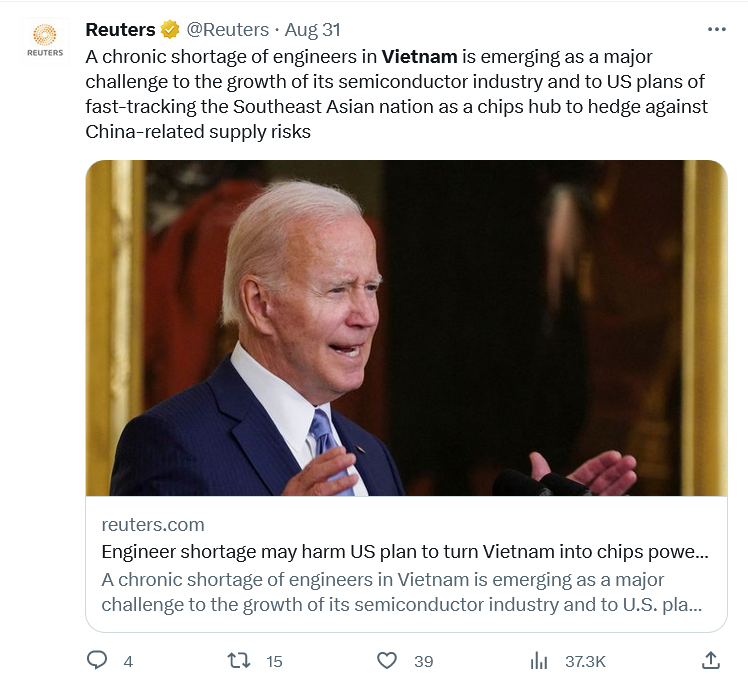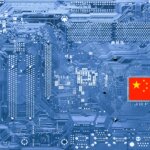Vietnam’s engineer shortage a hurdle in US chip hub plan

- US investing in Vietnam’s chip sector as chip war with China stays hot.
- A shortage of engineers in Vietnam is an increasingly pressing problem in the growth of the country’s semiconductor industry.
- Vietnam is currently the third largest chip supplier to the US, behind Malaysia and Taiwan.
Another day in the chip war: the US has plans to fast-track Vietnam as a chip hub to hedge against China-related supply chain issues, and semiconductors are expected to be a focal issue when US President Joe Biden visits Hanoi from September 10th.
The goal of the visit is to formally elevate ties between the two nations, and Vietnam will be offered support to boost chip production, according to US officials. “Friendshoring” segments on the strategic semiconductors industry has been a key move by Washington in persuading Vietnam’s communist leaders onboard.

Could Vietnam be a beneficiary of the US-China chip war? Yes, but it’s not without its challenges.
Due to fear of China’s reaction, Hanoi has been reluctant to upgrade relations with the US. However, boosting formal ties between the two countries will be profitable, potentially bringing billions of dollars of new private investment to Vietnam’s chip industry.
Standing in the way of all this is a massive shortage of engineers in Vietnam. According to industry officials, analysts and investors, the pool of trained experts is small and will be a crucial hurdle for development of Vietnam’s chip industry.
“The number of available hardware engineers is way below what is needed to support multi-billion-dollar investments” – about one-tenth of expected demand over the next 10 years – said Vu Tu Thanh, head of the Vietnam office of the US-ASEAN Business Council.
In five years’ time, it’s expected that there will be demand for 20,000 chip sector engineers in the 100-million-populated country; in a decade, that number is projected to reach 50,000. Currently, Vietnam only has 5-6,000 trained hardware engineers available for its semiconductor industry.
Adding to the issue is a risk of an inadequate supply of trained chip software engineers, said Hung Nguyen, senior program manager on supply chains at RMIT University Vietnam.

If Vietnam is to benefit from the chip war, it needs to solve its engineer problem.
According to Vietnam government figures, exports from the Southeast Asian country to the US are worth more than half a billion dollars annually. The nation is currently focused on the back-end manufacturing stage – assembly, packaging and testing of chips – of the supply chain, though it will slowly branch out into areas such as designing.
US industry executives have indicated that the back-end segment of the chips industry in Vietnam is a key growth sector, but the White House hasn’t yet specified which segments will be prioritized.
Moving out of China – choosing sides in the chip war
In 2019, nearly 40% of global back-end manufacturing happened in China, compared to just 2% in the US. A further 27% went on in Taiwan, where China has increased its military activity, stoking fears of conflict outbreak – an actual chip war!
With so much of the assembly segment of the chip supply chain concentrated in close quarters, Beijing has a very commanding position. In no other segment does it have such an upper hand, despite Intel having operated its biggest factory for assembling, packaging and testing chips in southern Vietnam for 15 years.

Hanoi could be a major player in the chip war – but has a chronic engineer crunch.
On a visit to Hanoi last month, US treasury secretary Janet Yellen said rival Amkor is building “a state-of-the-art mega factory for semiconductor assembly and testing” near Hanoi, in a sign of growing interest.
If a significant share of the $500 million made available under the US CHIPS Act goes to Vietnam, more private investment could come too. The US might also have an interest in boosting Vietnam’s supply of raw materials for chips, especially rare earths, of which the country is estimated to have the second largest deposits after China.
The country is also making inroads in the smaller segment of chip designing. U.S. chip design software company Synopsys has operations there, rival Marvell plans to build a “world-class” centre, and local firms are expanding.
Vietnam is also attracting interest from manufacturers of chip-making machines and has flagged ambitions to build its first semiconductor manufacturing plant, or fab, by the end of the decade.
All of which speaks in favor of Vietnam becoming a crucial player in the chip wars of the 21st century – provided it can crack its engineer shortage in time.










